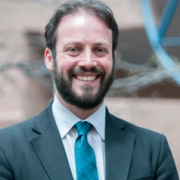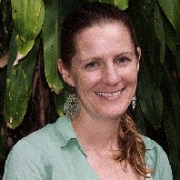In his podcast Soul Searching, Rabbi Neil Amswych from Temple Beth Shalom in Santa Fe interviewed Camilla Feibelman from the Sierra Club Rio Grande Chapter.
Here is an excerpt followed by a link to the full podcast.
 Rabbi Amswych Since you mentioned global climate change…one of the most obvious ways is through the way that we travel. I read a recent survey that said SUVs release more CO2 than the old small cars that we assumed pollute. Does this kind of thing, the pollution of cars. is this something on the radar of the Sierra Club?
Rabbi Amswych Since you mentioned global climate change…one of the most obvious ways is through the way that we travel. I read a recent survey that said SUVs release more CO2 than the old small cars that we assumed pollute. Does this kind of thing, the pollution of cars. is this something on the radar of the Sierra Club?
 Camilla Feibelman Absolutely. If you look at greenhouse gas emissions that we generate in New Mexico, by far and large the largest emitter of greenhouse gasses is the oil and gas industry. They emit 53 percent of all of New Mexico’s greenhouse gasses. That’s before the oil and gas is even burned. That’s just during the extraction phase. The second biggest category of pollution is transportation. And that’s because there are so many vehicles, so many trucks, so many heavy trucks, and each one of those is an individual source of pollution, not only to drive climate change but also that really impact community health for people who live along our highways and go to school along those roadways.
Camilla Feibelman Absolutely. If you look at greenhouse gas emissions that we generate in New Mexico, by far and large the largest emitter of greenhouse gasses is the oil and gas industry. They emit 53 percent of all of New Mexico’s greenhouse gasses. That’s before the oil and gas is even burned. That’s just during the extraction phase. The second biggest category of pollution is transportation. And that’s because there are so many vehicles, so many trucks, so many heavy trucks, and each one of those is an individual source of pollution, not only to drive climate change but also that really impact community health for people who live along our highways and go to school along those roadways.
Soul Searching Podcast Examines Climate Change, Electric Vehicles
/in Electric Vehicles, Featured Articles, Media, NEWS /by adminIn his podcast Soul Searching, Rabbi Neil Amswych from Temple Beth Shalom in Santa Fe interviewed Camilla Feibelman from the Sierra Club Rio Grande Chapter.
Here is an excerpt followed by a link to the full podcast.
Videos from our Webinar: Are There Really Pennies from Heaven?
/in Cool Congregations, Featured Articles, Media, NEWS /by adminIn Part 1,,Tiffany Hartung, national Interfaith Power and Light’s Chief Strategy Officer, discussed how congregations in New Mexico and elsewhere can get money from the federal government for your solar panel installation and other renewable energy projects.
In Part 2, we examine the energy assistance related to the Tierra del Sol project and IPL New Mexico & El Paso’s energy audits. Tiffany Hartung and others answer questions.
Add Your Voice in Support of State’s Advanced Clean Standards
/in Air Pollution, Electric Vehicles, Faithful Citizenship, Featured Articles, NEWS /by adminWe are just a few days away from the November 13-15 hearings in which the Environmental Improvement Board and Albuquerque Bernalillo Air Quality Board will decide whether or not to adopt the proposed Advanced Clean Vehicle Standards. Note: The hearings go until the 15th but there are no public comment opportunities on that final day.
You can make your support to state officials online via this public comment form